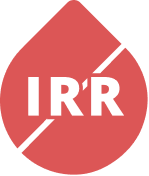Propylene Glycol
What is it?
Propylene Glycol is a solvent (allows things to dissolve), humectant (keeps things moist), and preservative (prevents decomposition) properties. It is widely used in medicines, cosmetics, and a variety of industries.
How can I avoid it?
Glycerin is an excellent substitute for propylene glycol in many formulations. Extremely sensitive individuals may have a flare-up or dermatitis after oral ingestion of foods or upon the use of oral, intramuscular, or intravenous medications containing propylene glycol.
Skin contact with propylene glycol is required for it to cause a rash. Discontinuation of exposure to products containing propylene glycol should result in improvement and/or resolution of your dermatitis. By law, all products made in the U.S. for topical use have the ingredients listed either on the product package or the box that contains it, so check the labeling of your skin care products for this ingredient. If there is not enough information ask your pharmacist or retailer, or contact the company directly. At work, request
a Safety Data Sheet (SDS) to help identify potential sources of exposure.
Uses:
- Aircraft de-icing compounds
- Artificial smoke, fog, and mist machines (fire training, rock concerts, and theater productions)
- Automatic antifreeze
- Automotive brake fluid
- Foods
- Salad dressing
- Cake mixes
- Toppings
- Cakes
- Vegetables
- Beverages
- Mountain Dew®
- Coconut
- Whipped topping mix
- Cheesecake mix
- Canned French fried onions
- Butter-flavored popcorn
- Coffee-based drinks
- Liquid sweeteners
- Ice cream
- Beer
- Baked goods
- Margarine
- Nuts
- Household cleaning products and liquid detergents
- Wipes
- Inks
- Skin Care Products / Cosmetics
- Deodorants
- Facial Cleansers
- Make-up
- Moisturizers / Lotions
- Mouthwash and toothpaste
- Powders / Sprays
- Shaving products
- Soaps / Cleansers/ Household detergents
- Shampoos / Conditioners
- Sunscreens
- Towelettes
- Medications, topical, prescription, and over the counter such as
- Anesthetics
- Antibiotics
- Benzoyl peroxide preparations
- Eye / Ear / Nose preparations
- Injectables (intramuscular, intravenous)
- Lubricant jelly
- Medical gels (Electro II, electrocardiogram gels, Spectra 360, transcutaneous nerve stimulator gel)
- Oral cough preparations
- Paint
- Dog food
- Plastics
- Tobacco (as humectant)
- Varnishes and synthetic resins
- Electric e-cigarettes / vaping products
Other names for propylene glycol:
- 1, 2 dihydroxypropane
- 1, 2 propanediol
- Methyl Ethyl Glycol (MEG)
- 2-Hydroxylpropanol
- Methylethylene Glycol
- Propane-1, 2-diol
Potential cross-reacting/co-reacting substances:
- Ethylene glycol































